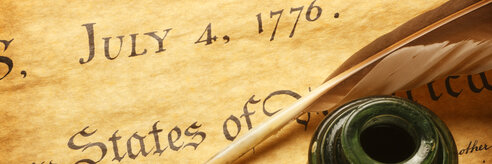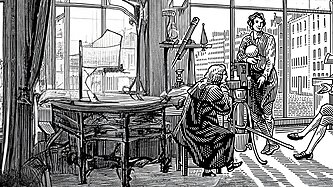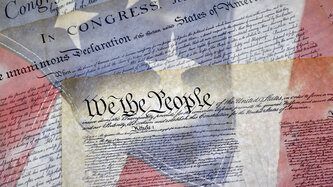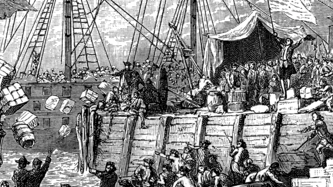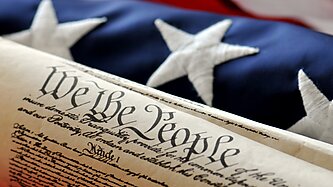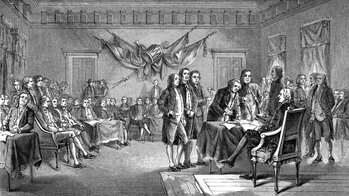The grievances outlined in the Declaration of Independence are a series of claims regarding violations of the colonists’ rights. We can understand these violations through both the principles outlined earlier in the document and other key principles from the English tradition of law, known as the common law, on which much of the colonial legal system and practices were based. Of the latter, perhaps none is more important than the rule of law.
In general, the rule of law requires that everyone in a society be equally subject to the same laws. Those laws must be made in a public way, in accordance with the idea of the consent of the governed, and they must be equally enforced and independently judged. This idea is often simplified to state that, under this principle, no one is above the law—not even a king or president. Though this principle is of ancient origin, the Founders were also heavily influenced by later ideas in the Magna Carta and the common‐law tradition and by Enlightenment thinkers such as John Locke and Sir William Blackstone.
Many of the grievances articulated the ways in which the King and Parliament violated the rule of law. By examining each part of the rule of law in turn, we can see how the Founders perceived the King and Parliament’s behavior as a systematic effort to deny the colonists their rights and protections under this principle. For example, the Declaration notes that the King “has made Judges dependent on his Will alone, for the Tenure of their Offices, and the Amount and Payment of their Salaries.” The King sent judges who answered solely to his power to the colonies, which was a direct violation of the idea of all being equally subject to the law.
Just as egregious were the King and Parliament’s efforts to undermine the principle that laws should be publicly made and reflect the consent of the governed. To name only two violations of this provision, consider the following grievances:
-
“He has refused to pass other Laws for the Accommodation of large Districts of People, unless those People would relinquish the Right of Representation in the Legislature, a Right inestimable to them, and formidable to Tyrants only.”
In each of these cases, we see the King and Parliament working to deny representative government—the main form of consent of the governed practiced at the time—as well as the forms of known and promulgated law.
The final major components of the rule of law are the ideas of equal enforcement of the law and judgment by an independent judiciary. We have already seen that the King had made judges in the colonies dependent entirely upon his will. Additionally, the Declaration charges that the King deprived the colonists of “the Benefits of Trial by Jury,” one of the crucial protections for both equal enforcement of the laws and an independent judiciary. Further, we see in other grievances that the King and Parliament had refused to enforce laws against troops who had murdered colonists, “protecting them, by a mock Trial.”
